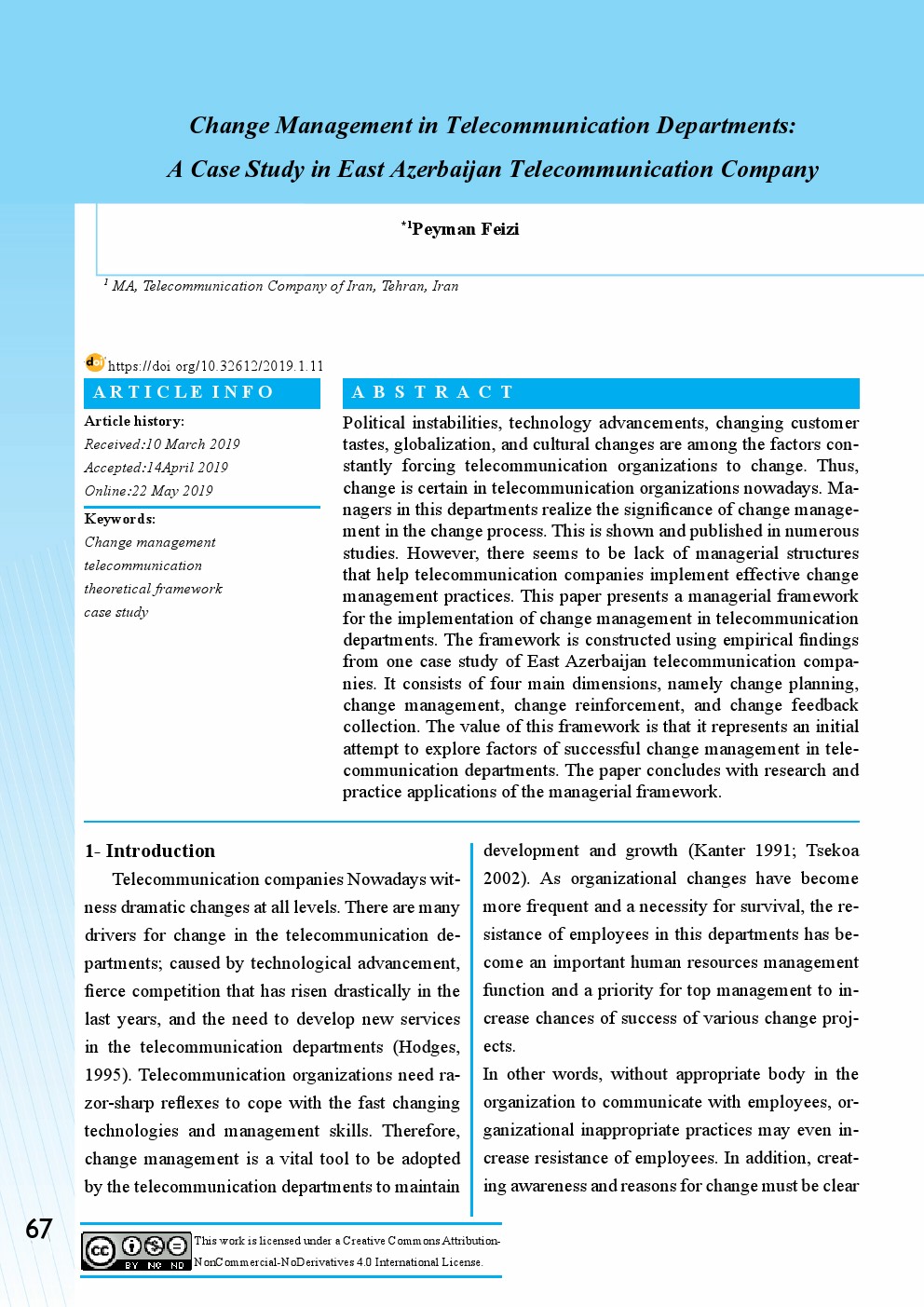Change Management in Telecommunication Departments: A Case Study in East Azerbaijan Telecommunication Company
Main Article Content
Abstract
Political instabilities, technology advancements, changing customer tastes, globalization, and cultural changes are among the factors constantly forcing telecommunication organizations to change. Thus, change is certain in telecommunication organizations nowadays. Managers in this departments realize the significance of change management in the change process. This is shown and published in numerous studies. However, there seems to be lack of managerial structures that help telecommunication companies implement effective change management practices. This paper presents a managerial framework for the implementation of change management in telecommunication departments. The framework is constructed using empirical findings from one case study of East Azerbaijan telecommunication companies. It consists of four main dimensions, namely change planning, change management, change reinforcement, and change feedback collection. The value of this framework is that it represents an initial attempt to explore factors of successful change management in telecommunication departments. The paper concludes with research and practice applications of the managerial framework.
Downloads
Article Details

This work is licensed under a Creative Commons Attribution-NonCommercial-NoDerivatives 4.0 International License.
References
Avey, J.B.,&Wernsing, T.S. (2008). Can positive employees help positive organizational change? Impact of psychological capital and emotions on relevant attitudes and behaviors. The Journal of Applied Behavioral Science, 44(1), 48-70.
Bashir,J.,&Afzal,S. (2011). Ethics based model for change management, Paper presented at
South Asian International Conference on Management arranged by Academyfor Global Business Advancement (AGBA) and COMSATS.
Boyatzis, R.E. (1998). Transforming qualitative information: Thematic analysis and code development. London: Sage.
Braun, V.,& Clarke, V. (2006).Using thematic analysis in psychology.Qualitative research in psychology, 3(2) ,77-101.
Bryman, A., &Bell, E. (2007). Business research methods.(2nd ed.). Oxford: Oxford University Press.
Cameron, E., & Green, M. (2004). Making sense of change management: a complete guide to the models, tools& techniques of organizational change, Kogan Page Publishers.
Cooper, R.D., & Emroy, C.W. (1995).Business research methods. (5th ed.). Homewood, IL.USA: Richard D. Irwin.
Davidson, J. (2002). The Complete idiot’s guide to change management, Indianapolis: Alpha Books.

